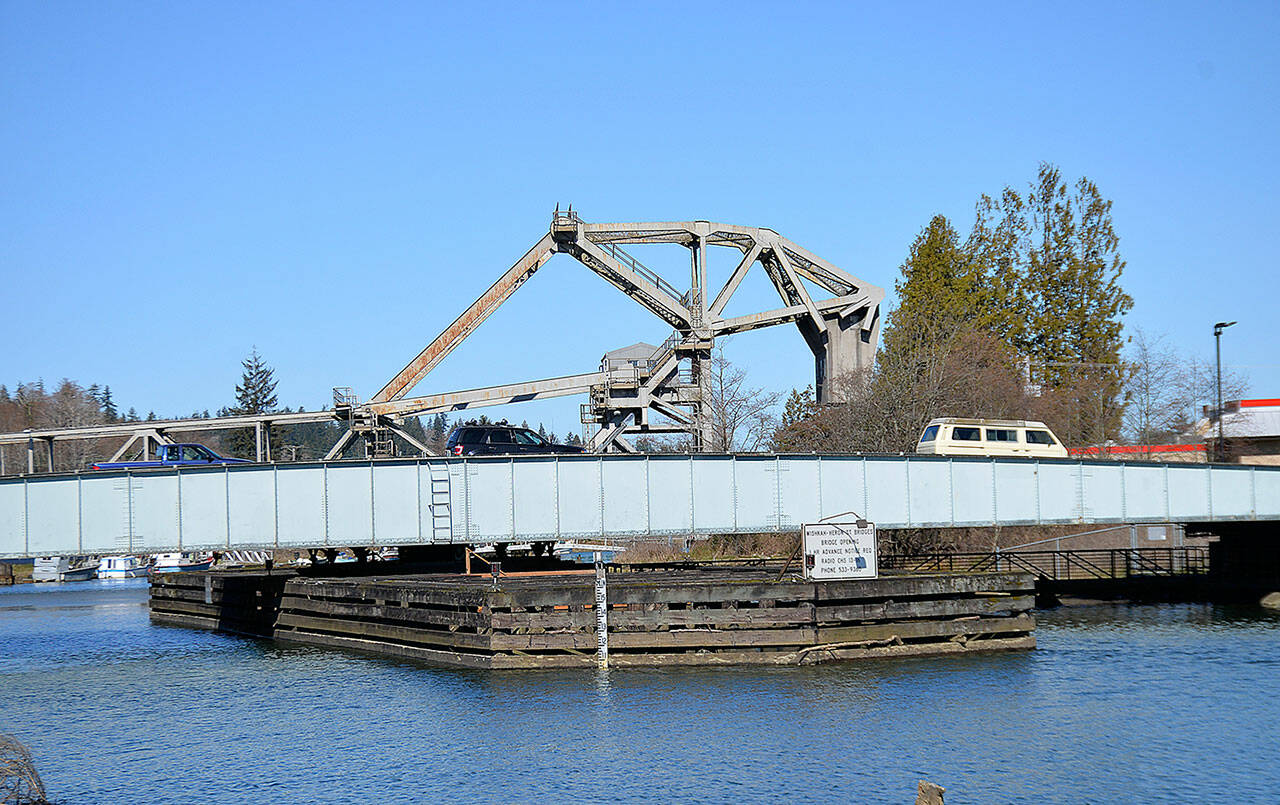Updated Nov. 17
Local leaders are voicing their support after the passage earlier this month of the federal Infrastructure Investment and Jobs Act, which includes $550 billion in new federal funding for infrastructure in communities across the country.
The Act was signed into law by President Biden on Monday.
U.S. Rep. Derek Kilmer’s office said the bipartisan Act makes the largest federal investment in public transit ever; repairs and rebuilds road and bridges with a focus on climate change mitigation, resilience, equity, and safety for all users, including cyclists and pedestrians.
The Act also makes the largest investment in clean drinking water and waste water infrastructure in American history, delivering clean water to millions of families; and ensures every American has access to reliable high-speed internet.
“This infrastructure bill is about jobs. It’s about putting people to work now — and laying the foundation for economic growth over the long haul by investing in roads, bridges, transit, water systems, ports, and broadband,” said Kilmer.
“There are folks in our region who are tired of sitting in traffic. There are people who don’t have the internet access they need to have a telehealth appointment or take an online class. There are families that don’t have access to clean water. This bill is about fixing those problems. Those are priorities worth moving forward.”
Local elected officials also reacted to the Act’s passage and its potential positive impact on big-ticket infrastructure projects on the Harbor.
“The Port of Grays Harbor applauds Congress on the passage of this historic piece of legislation and these unprecedented levels of funding for programs that are critical to improving our nation’s infrastructure,” said Port of Grays Harbor Commissioner Tom Quigg.
“The Aberdeen US12 Highway-Rail Separation Project and the Port’s East Terminal 4 redevelopment and expansion are perfect examples of projects that are ready to be awarded funding from federal programs so that we can continue to create jobs and opportunities for all of Grays Harbor.”
The funding can trickle down to small municipalities for their own improvement and infrastructure projects.
“The city of Montesano is thankful for any opportunity to receive assistance in maintaining and improving the infrastructure of our community,” said Montesano Mayor Vini Samuel. “Like most small rural cities, repaving a block of road is a major endeavor and expense. We appreciate that Congress is focused on repairing much needed infrastructure.”
All of them thanked Kilmer for his support of the Act, including Grays Harbor College President Ed Brewster, who said the Act will be a boost to the economy by expanding job opportunities.
“This legislation will increase employment opportunities for the graduates of our programs in several areas including carpentry, welding, automotive, forestry and other related fields,” said Brewster. “The increase in internet broadband is critical to our rural community to provide access for many of our instructional and student service opportunities.”
Cosmopolis Mayor Kyle Pauley said the Act’s investment in broadband is significant, especially after the pandemic had so many working and learning from home.
“The need to connect rural Washington to reliable broadband was never more apparent than during the pandemic. While metropolitan areas made the easier transition to remote work and learning, many of our neighbors did not have that opportunity,” said Pauley.
“Connecting all our communities can only create better relationships and collaborations. In addition, the Olympic Peninsula loop is without question the most scenic and beautiful drive in Washington. With more residents and visitors looking to experience it for themselves, the need to make it accessible with EV charging stations along the route is vital. This bill provides that opportunity.”
According to Kilmer’s office, 1,409,000 or 19% of people in Washington will be eligible for the Act’s Affordability Connectivity Benefit, which will help low-income families afford internet access.
Kilmer’s office indicated Washington, based on the funding forumla, would expect to receive $4.7 billion for federal-aid highway apportioned programs and $605 million for bridge replacement and repairs over five years. The state can also compete for the $12.5 billion Bridge Investment Program for economically significant bridges and nearly $16 billion of national funding in the bill dedicated for major projects that will deliver substantial economic benefits to communities.
For more from Kilmer’s office about the Act’s impact on Washington, visit https://kilmer.house.gov/download/iija-impact-on-wa. A link to the legislation itself can be found at congress.gov/bill/117th-congress/house-bill/3684.




